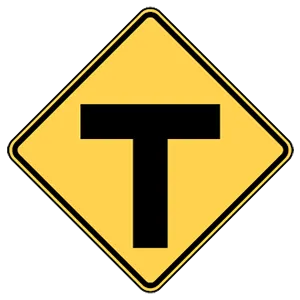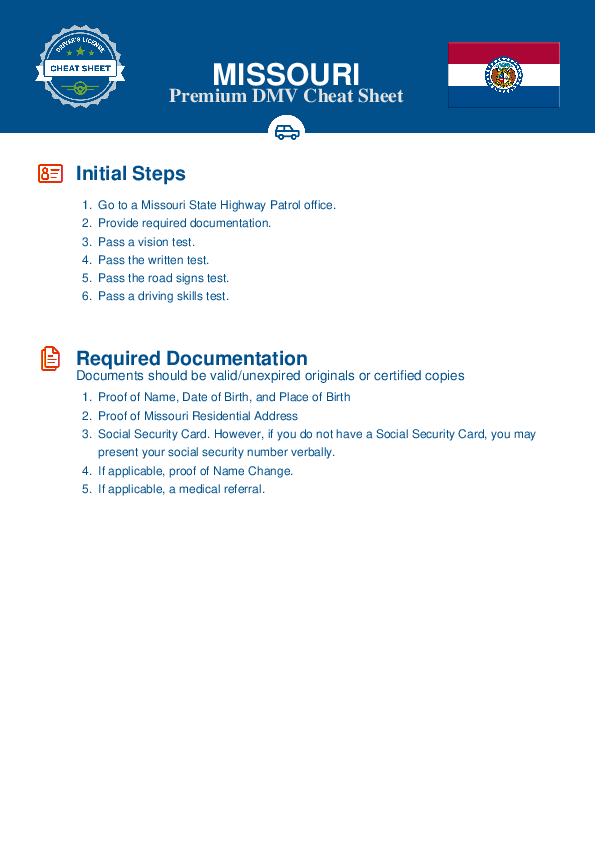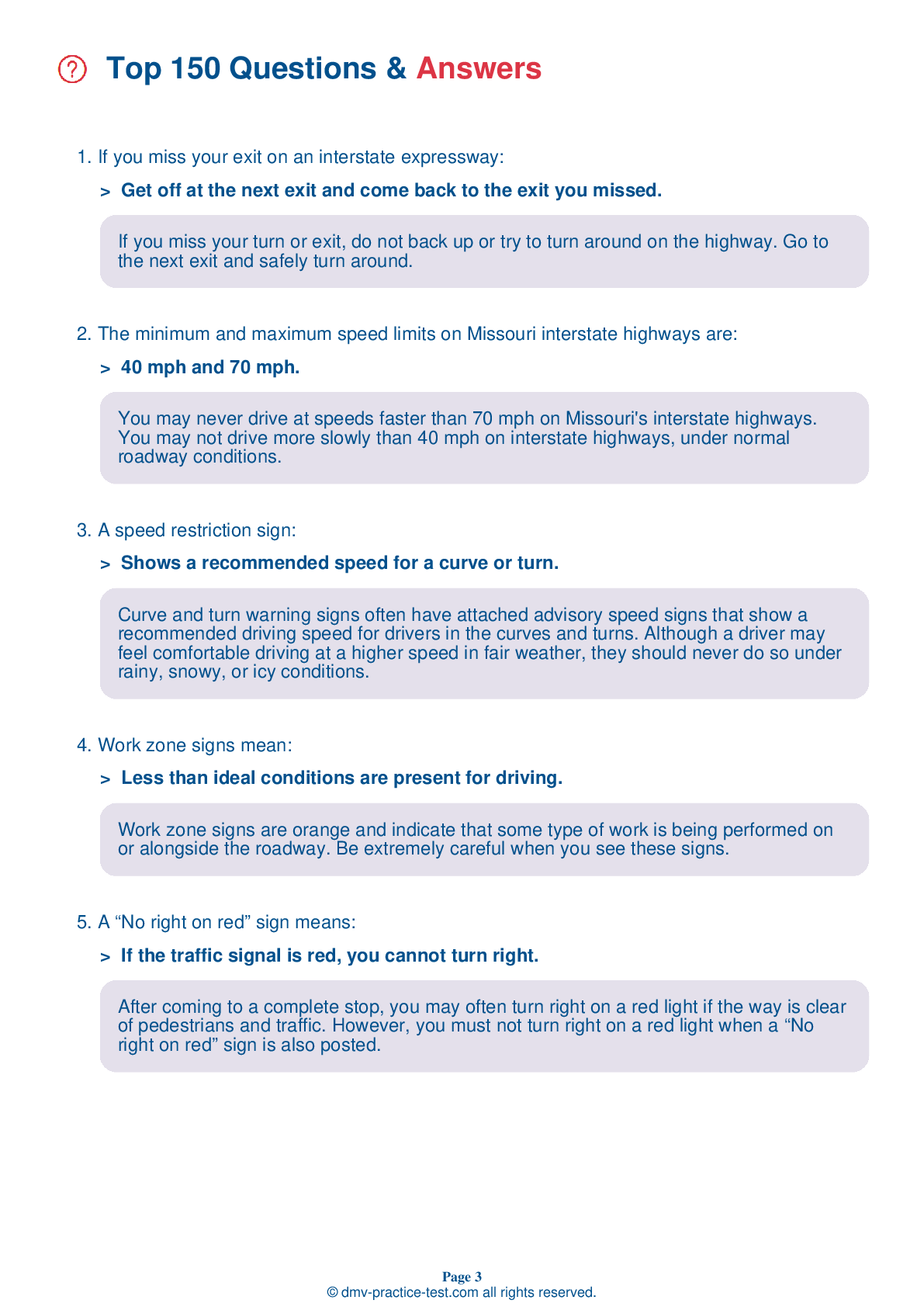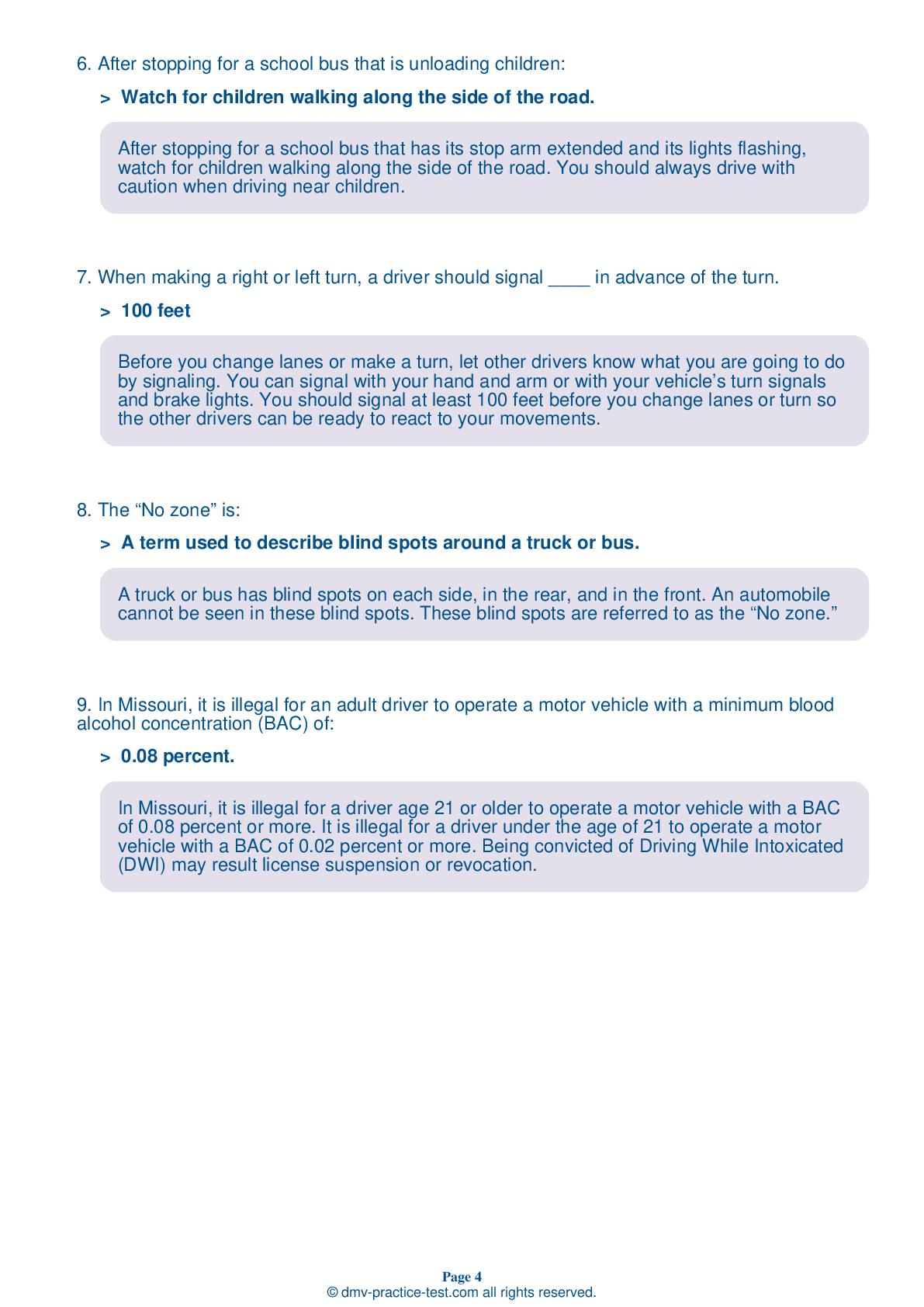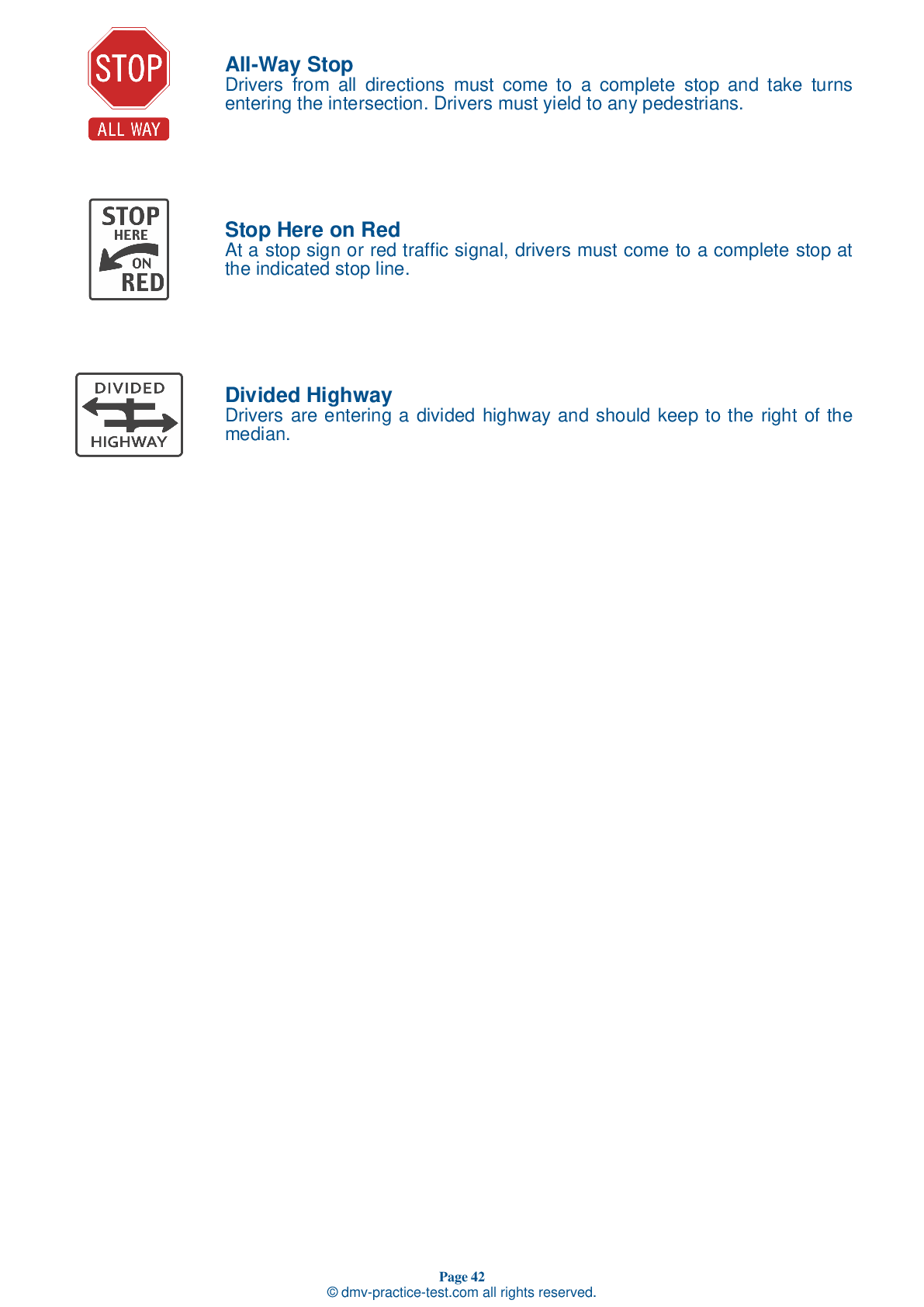FREE Missouri DMV Practical Test Page 3 of 4
The Missouri DMV practise include questions based on the Missouri Driver Handbook's most essential traffic signals and regulations.Use actual questions that are very similar (often identical!) to the DMV driving permit test and driver's licence exam to study for the DMV driving permit test and driver's licence exam.
On the practise exam, each question gets a tip and explanation to help you remember the concepts. The written component of the official Missouri DMV test will include questions about traffic rules, traffic signs, and driving statutes, as well as knowledge from the Driver Handbook.
To obtain a passing grade, you must correctly answer 20 of the 25 questions. To help you prepare for your instruction permit or driver's licence, take this Missouri DMV practise test.
The DMV exam is available in several languages.
Using any kind of testing assistance will result in an automatic fail, and the DMV may take additional action against your driver's licence, so stay away from it.
13 . This sign shows one type of:
